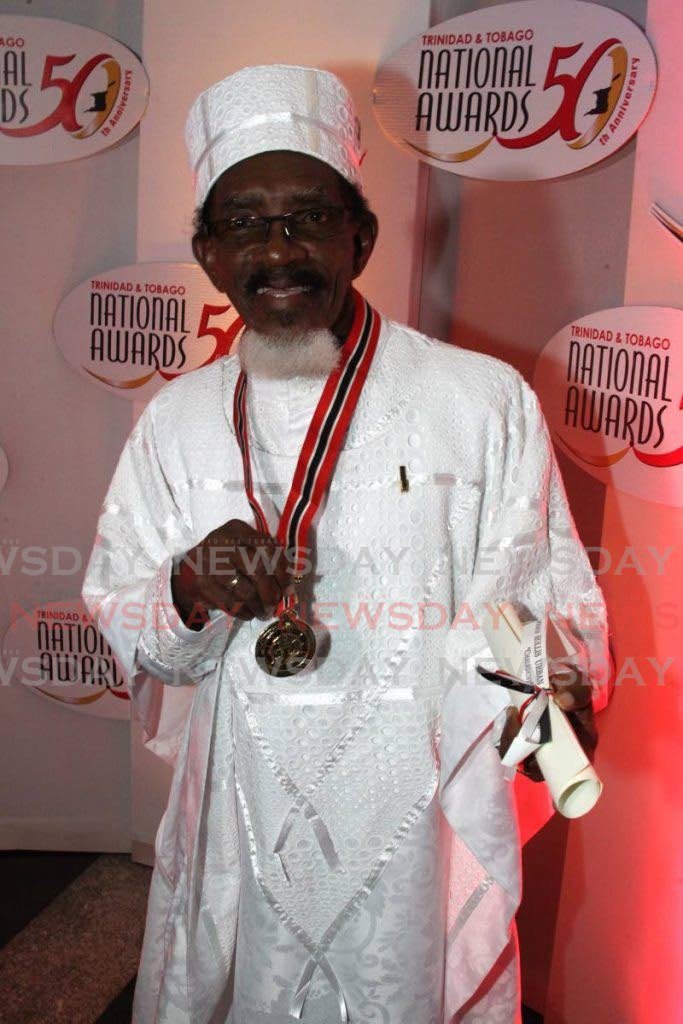Something in the mortar beside the pestle

HOLLIS “CHALKDUST” LIVERPOOL
CIRCUMSTANCES happening between the Government of India, the Indian high commissioner to TT, and the Government of TT have forced me to pick up my pen again.
The role of an ambassador in a foreign country is to so liaise with the host country to bring about agreements that will promote and increase his country’s prosperity, stifle quarrels that may arise between both parties, and strive for peace at all times and in all things. To carry out such a mandate, an ambassador/high commissioner must study the country’s history where he serves and inform himself of all the bilateral experiences and relations that comprise his host and his country’s past.
Therefore, the present Indian high commissioner to TT, Arun Kumar Sahu, must know that TT and India’s relations go back to as early as May 30, 1845, when the Fatel Razack brought 225 indentured Indians to our shores. Our relations with India were further tied when, in 1962, both countries established diplomatic missions and pleasantries.
Soon after our independence, I remember our own Dr Reginald Griffith visiting India to fight the dreaded red ring disease and saving, to a large extent, India’s coconut industry. I recall, when I worked at the Ministry of Culture, TT signing bilateral agreements with India in 1985 for co-operation in science and technology; in 1987 another for cultural co-operation, and in 2003, yet another for political, economic, scientific, technological and cultural co-operation.
In 1997, I had the pleasure of speaking to the president of India, Dr Shankar Dyal Sharma, who, as prime minister Basdeo Panday’s guest, informed me of his joy at seeing the opening of the Mahatma Gandhi Institute of Cultural Co-operation in Trinidad. TT provided India with land to establish its institute here, and India was supposed to reciprocate the TT Institute for Culture there.
India indeed holds TT in such high esteem that prime ministers Panday and Kamla Persad-Bissessar and ministers Lenny Saith and Winston Dookeran, over the years past, have been bestowed with the Pravasi Bharatiya Samman Award by India. This award, meant to strengthen the overseas Indian community, is the highest accolade granted to Indians overseas.
TT, as a state, also holds India in such high esteem that PM Panday, via his deals and agreements, made it his business to confer India with the “Most Favoured Nation” status in 1997; India did likewise. Small wonder then that Prime Minister Rowley also made it his business to meet separately with Prime Minister Narendra Modi at the 75th session of the UN in September 2019 to discuss Trini-Indian business.
In terms of cultural festivals, while many Indian citizens have studied in Trinidad, our nationals such as Sat Balkaransingh, Mungal Patasar, Tej Ramlogan, and Indrani Rampersad, to name a few, have successfully completed their tertiary studies in India. Moreover, many academics from India and Dr Indrani Rampersad of Trinidad, through the Academy of Arts, Letters, Culture and Public Affairs of the University of TT and the Ayodhya Research Institute of India, have provided researchers with a better understanding of the Ramleela ritual and performances in Trinidad, north India, and Mauritius.
Another outstanding aspect in the relations between India and TT is the fact that when India objected to the indenture of Indians overseas in 1917, its demands to end that hated system of labour contributed immensely to the rising nationalism that subsequently pervaded India; such feelings of nationalism further led India to demand its independence from Britain. Thus, to a large extent, India’s ties with TT and with Guyana to a lesser extent provided the citizenry of India with the impetus to demand its freedom from Britain.
Moreover, if, historically, the reader should add the fact that English plantation owners, like the notable and wealthy William Burnley, sought Indian labourers to supplant the dwindling African workers on plantations here, or the hardships, too numerous to mention, that the indentured Indians on plantations in Caroni, Oropouche, and St James suffered, he or she would inevitably conclude that no country in the western hemisphere has had stronger ties in life and struggle with India than TT.
Adding all these facts to the millions in finance and human services contributed by the Indians in TT to the world’s economy, as well as assisting India during indentureship times with its problems of labour, poverty and unemployment, a knowledgeable prime minster like the learned Modi must have TT at the forefront of his mind when he despatched “covid vaccines to 72 nations across geographies.” Seventy-two nations and TT left out of India’s early despatch? Even if Modi forgot TT, it was his high commissioner’s duty to remind him of the close economic, social, and political ties of our two nations, ties that have been cemented time and time again, ties that are indeed the strongest in the entire Caribbean.
Trinidad’s early experience in seeking vaccines from India reminded me of what my mother used to say: “Something in the mortar beside the pestle.”


Comments
"Something in the mortar beside the pestle"